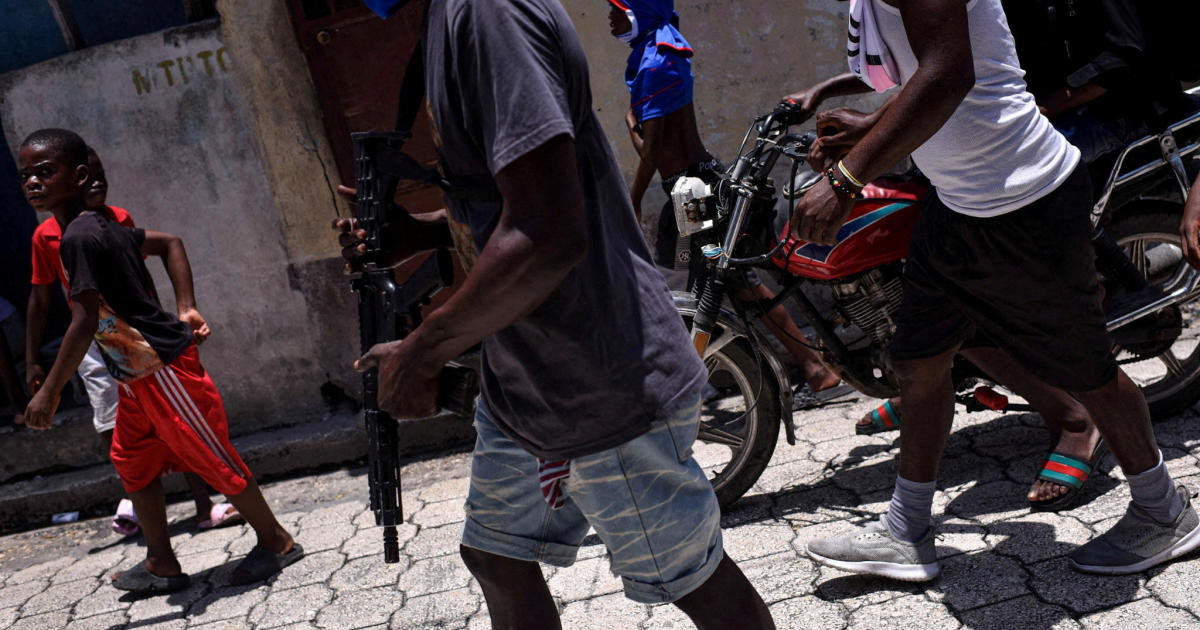Haiti’s escalating gang violence is forcing increasing numbers of children into lives of crime, sexual abuse, and exploitation. The desperate conditions of poverty and hunger leave many with few alternatives, pushing them into the arms of criminal gangs who offer food, shelter, and a sense of belonging, however dangerous and exploitative that belonging might be. The scale of the problem is alarming, with estimates suggesting that nearly a third of gang members are now children. This alarming trend, fueled by systemic issues and the ongoing instability in the nation, demands urgent international attention and intervention.
The Rise of Child Soldiers in Haiti’s Gangs
Recruitment and Inducements
Criminal gangs in Haiti are actively recruiting children, often preying on those living in poverty or orphaned. The gangs exploit children’s vulnerability, offering them basic necessities like food and shelter— things many children are denied. This recruitment is often subtly insidious, exploiting children’s lack of options in a country struggling with rampant poverty and the near-total collapse of government services. The allure of these basic necessities, lacking in the children’s lives, is a powerful force. Human Rights Watch highlights the increasing use of social media, platforms like TikTok, to entice and recruit young people into the ranks of criminal gangs, amplifying the reach of these groups beyond immediate geographical vicinity and making the children vulnerable on a massive scale.
Roles and Treatment of Child Soldiers
Once recruited, children are assigned various roles based on their age and gender. Boys are frequently used for tasks involving physical strength, transporting weapons, acting as informants, or even participating in violent crimes like kidnappings and murders. In exchange, they receive food and sometimes money which they often use to support their families. Girls, however, face a far more sinister fate. They are frequently subjected to sexual abuse and forced into domestic servitude, often with little chance of escape. These acts of sexual exploitation and forced labor are committed systematically by gang members and leadership and are integral part of gang activities rather than acts of individual criminal violence. The Human Rights Watch report paints a grim picture of sexual violence used to control and exploit children, highlighting the normalization of sexual violence, with children repeatedly abused and viewed as possessions or sexual objects by gang members and leadership.
The Humanitarian Crisis Fueling Gang Recruitment
Poverty and Hunger as Driving Forces
The ongoing humanitarian crisis in Haiti is a crucial factor contributing to the increase in child soldiers. Acute hunger affects a significant portion of the population, including around 125,000 children. With food and basic needs scarce, gangs exploit this vulnerability to recruit children and gain their compliance. This situation forces many to believe that joining a gang offers a preferable alternative to starvation or destitution, especially children without parental care or support structures. This dynamic presents a deadly combination: gang violence generates additional humanitarian distress, creating fertile recruitment grounds for child soldiers which increases gang violence perpetuating a self-feeding cycle.
The Collapse of Governance and Security
The near total collapse of Haiti’s governance and security systems also plays a significant role. The lack of effective law enforcement and social services creates a power vacuum filled by armed gangs that establish control over entire territories, exacerbating poverty and deepening humanitarian crisis. The ineffective governmental structures make it impossible to provide humanitarian assistance and protection and even rescue services are highly limited in scope and accessibility. This state of near anarchy leads to a desperate struggle for survival, leaving vulnerable children at the mercy of those seeking to exploit and control them.
International Response and Future Actions
The Urgent Need for International Aid
The situation in Haiti demands an immediate and comprehensive international response. More humanitarian aid is desperately needed to address the underlying causes of child recruitment, including poverty and hunger. This includes the increased provision of food aid and initiatives aimed at creating more jobs for the broader Haitian population, empowering those facing starvation. Effective humanitarian relief efforts must also provide accessible shelter and improved infrastructure and services, preventing gang violence and promoting humanitarian stability. The international community and aid agencies need to urgently support such programs on a massive scale.
Protecting Children and Dismantling Gangs
Simultaneously, efforts must focus on protecting children and dismantling the gangs themselves. This requires a multifaceted approach that incorporates strong international involvement and effective long-term commitment, coordinating international and national rescue operations and facilitating improved long term protection and assistance to affected children and communities. International law enforcement, in cooperation with Haitian national forces, must cooperate to track gang activities and arrest gang leadership, taking appropriate measures against these dangerous criminal groups. Furthermore, robust and extensive rehabilitation programs for victims of abuse are essential in assisting the long term reintegration of children and young people into society. Haiti’s transitional government needs strong support from the international community in initiating essential child protection initiatives.
Take Away Points
- Haiti’s gang violence is driving a surge in child recruitment, with children facing severe exploitation and abuse.
- Poverty and hunger are significant factors pushing vulnerable children into joining gangs.
- International aid and coordinated efforts are urgently needed to address the humanitarian crisis and combat gang activity.
- Protecting children, dismantling gangs, and providing comprehensive rehabilitation programs are critical to solving this complex crisis.
- The international community must work in tandem with the Haitian government to foster effective strategies for tackling both immediate humanitarian needs and long-term systemic issues in Haiti.




